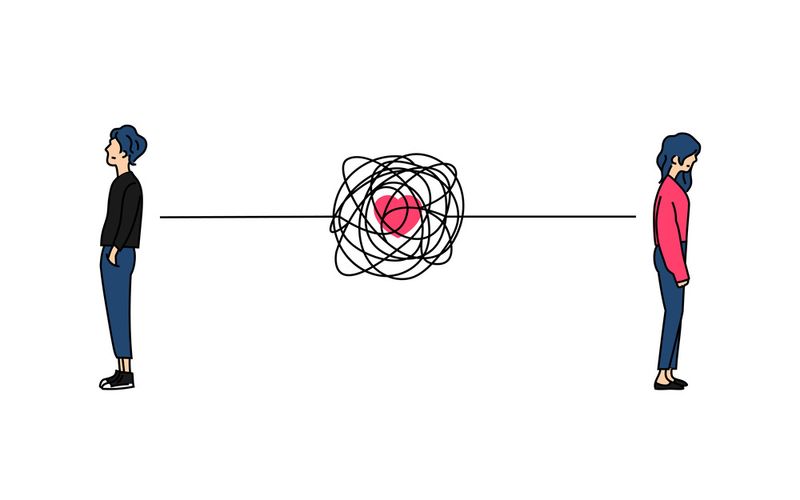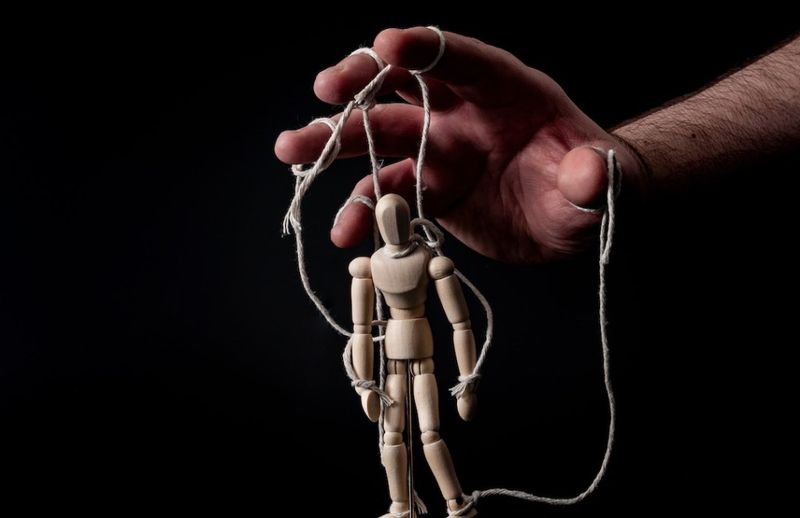“Mom’s Shadow”: 17 Reasons Why Some Men Can’t Find Love (And How To Spot Them)
In the intricate dance of relationships, certain patterns can hinder some men from finding and nurturing love. Often, these patterns are rooted in upbringing and family dynamics, creating emotional shadows that influence adult interactions.
This article delves into 17 distinct reasons why such men struggle to establish healthy relationships with partners, offering insights into identifying these behavioral patterns.
From subconscious comparisons with their mothers to avoidance of responsibility for personal happiness, these factors illuminate the complex interplay between familial influences and romantic pursuits.
Understanding these reasons can empower individuals and couples to foster more authentic and fulfilling connections.
1. Expecting a partner to “mother” them emotionally

Imagine a relationship where one partner expects constant emotional nurturing, much like a child seeks from a mother. For some men, this dynamic becomes their reality, leading to unsustainable partnerships. This expectation often stems from childhood experiences where a mother’s attention was abundant and unconditional. Such men may struggle to cope when their partners seek equality rather than parent-like care, creating tension.
This dependency prevents genuine emotional growth, as they rely heavily on their partners for validation and support. Over time, this imbalance can lead to dissatisfaction and resentment on both sides, driving a wedge between them. It’s essential to recognize this pattern to develop more balanced and mature relationships.
2. Struggling with independence from family influence

For some, the family remains a persistent whisper in their ear, guiding every decision, including romantic choices. These men find it challenging to establish their own identity outside of familial influence. This struggle can manifest in an inability to make independent decisions without seeking family approval.
Such behavior can frustrate partners who desire a more autonomous and self-assured companion. The shadow of family influence looms large, making it difficult for these men to fully commit to a relationship where their partner’s needs might sometimes conflict with family expectations. Understanding and addressing this dependency is crucial for developing a healthy, independent love life.
3. Feeling entitled to constant care and attention

Entitlement can be a silent relationship killer, especially when one partner demands unwavering attention and care. Some men, accustomed to being the center of their mother’s world, carry this expectation into adult relationships. This entitlement is a double-edged sword, fostering resentment in relationships.
Partners may feel overwhelmed by the constant demands, leading to friction and arguments. Over time, this can erode the foundation of love and respect required for a healthy partnership. Recognizing this sense of entitlement is a step toward fostering mutual respect and care in a relationship, allowing both partners to thrive.
4. Avoiding responsibility for their own happiness

Some men place the onus of their happiness on their partners, avoiding personal responsibility. This avoidance stems from a lack of emotional maturity, often rooted in a dependent relationship with their mothers. These men may believe their partner holds the key to their contentment, creating unrealistic expectations.
This mindset can lead to frustration and disappointment when the partner fails to meet these needs. It stifles personal growth and prevents the development of a fulfilling, autonomous life. Acknowledging and addressing this pattern can lead to more authentic and satisfying relationships, where happiness is a shared journey, not a burden.
5. Comparing every woman to their mom (and finding flaws)

Comparison can be a destructive habit, especially when a partner is constantly measured against an idealized version of a mother. Some men struggle to see their partners for who they are, focusing instead on perceived shortcomings. This comparison creates a sense of inadequacy, both for them and their partners.
The shadow of the past looms large, hindering the development of genuine connections based on mutual appreciation. By recognizing and overcoming this habit, men can foster more authentic relationships built on acceptance and understanding, free from the constraints of unrealistic comparisons.
6. Fearing conflict and shutting down emotionally

Conflict is inevitable in any relationship, but the fear of it can be paralyzing. Some men, conditioned to avoid disagreement at all costs, may withdraw emotionally at the first sign of discord. This fear often originates from a childhood desire to maintain peace in a household dominated by a strong maternal presence.
Emotional shutdowns prevent resolution and growth, leaving issues unresolved and partners feeling unheard. Learning to face conflict constructively is vital for a thriving relationship, where both parties feel valued and understood. Addressing this fear can foster a more open and communicative partnership.
7. Overly dependent on family opinions about dating

Family opinions can weigh heavily on some men’s dating decisions, causing undue stress and indecision. These men may struggle to separate their desires from family expectations, leading to relationships that feel more like family-approved mergers than personal choices.
This dependency often stems from a need to maintain familial harmony, even at the expense of personal happiness. Partners may feel sidelined by this dynamic, as their significance is overshadowed by familial influence. Building a relationship based on personal values and desires is crucial for lasting happiness and fulfillment.
8. Resisting vulnerability in relationships

Vulnerability is the cornerstone of deep, meaningful relationships, yet some men resist it fiercely. This resistance often arises from upbringing in environments where emotional exposure was discouraged or seen as a weakness. Without vulnerability, genuine connections are nearly impossible to forge.
Partners may feel shut out, unable to reach the emotional depths necessary for intimacy and trust. Embracing vulnerability allows for deeper understanding and acceptance, paving the way for resilient, loving partnerships. Recognizing this pattern can enhance emotional intimacy and strengthen the bond between partners.
9. Prioritizing mom’s needs over their partner’s

For some men, their mother’s needs and opinions take precedence over their partner’s. This prioritization can create a rift in relationships, as partners feel secondary to maternal ties. Often, this behavior is ingrained from childhood, where pleasing the mother was paramount.
This dynamic leads to feelings of neglect and frustration, as partners struggle to find their place. For a relationship to thrive, it’s essential to balance family obligations with the needs of a romantic partnership, ensuring both parties feel valued and respected.
10. Believing love is about being taken care of

Some men equate love with being cared for, a belief stemming from experiences where maternal affection was synonymous with service. This perception can hinder the development of relationships based on equality and mutual support. Partners may feel more like caretakers than equals, leading to imbalance.
This belief prevents the growth of a partnership where both individuals contribute equally, fostering resentment. Acknowledging that love is a two-way street, requiring effort and nurturing from both sides, is crucial for a balanced and fulfilling relationship.
11. Feeling guilt when setting boundaries with family

Setting boundaries with family can be an emotionally charged task, especially for those who have never done it. Some men experience profound guilt when attempting to establish these boundaries, fearing disapproval or rejection. This guilt can spill over into their romantic relationships.
Without boundaries, partners may feel their relationship lacks independence, overshadowed by family dynamics. Recognizing the importance of personal boundaries is essential for cultivating a healthy relationship, where both partners feel secure and prioritized.
12. Unwilling to grow out of childhood habits

Childhood habits can be comforting, yet clinging to them can hinder emotional and relational growth. Some men, resistant to change, may find themselves stuck in patterns that are incompatible with adult relationships.
Partners may feel they are dealing with an adolescent rather than a mature equal, leading to frustration and discord. Embracing personal growth and maturity is key to fostering a partnership where both individuals can thrive and support each other’s development.
13. Avoiding long-term commitment

Commitment can be a daunting prospect, especially for those who fear permanence. Some men shy away from long-term commitments, preferring the safety of short-term flings. This avoidance often stems from an underlying fear of losing freedom or making irreversible choices.
Partners desiring stability may feel insecure and unfulfilled, leading to tension. Acknowledging and addressing this fear is crucial for building a relationship with a strong foundation of trust and security.
14. Struggling with basic life skills

Basic life skills, such as cooking or managing finances, are essential for adult independence. Some men struggle with these skills, relying on partners to fill the gaps left by insufficient childhood preparation. This dependency can strain relationships.
Partners may feel overwhelmed by the imbalance, as they take on roles beyond their capacity. Developing these skills not only fosters personal growth but also strengthens the relationship by allowing both partners to contribute equally to shared responsibilities.
15. Using manipulation to get their way

Manipulation is a subtle but potent force that can undermine trust in a relationship. Some men, accustomed to getting their way through manipulation, carry this behavior into partnerships. This tactic often stems from childhood experiences where manipulation was an effective strategy.
Partners may feel coerced or controlled, leading to resentment and mistrust. Recognizing and addressing manipulative behaviors is essential for fostering a relationship based on mutual respect and honesty, where both partners feel valued and heard.
16. Resenting partners who expect equality

Equality in relationships is a cornerstone of modern partnerships, yet some men resist this concept. Raised in environments where traditional roles were dominant, they may resent partners who expect shared responsibilities and decision-making.
This resistance can create tension, as partners seek a balanced partnership where both individuals contribute equally. Embracing equality allows for a more harmonious and fulfilling relationship, where both parties feel respected and valued.
17. Failing to recognize their own patterns

Self-awareness is vital for personal and relational growth, yet some men struggle to recognize their own patterns. This lack of insight can lead to repeated mistakes and unresolved issues in relationships. Without recognizing these patterns, meaningful change is impossible.
Partners may feel stuck in a cycle of frustration, unable to move forward. Cultivating self-awareness is crucial for breaking free from negative cycles and fostering a relationship where both partners can grow and thrive.







